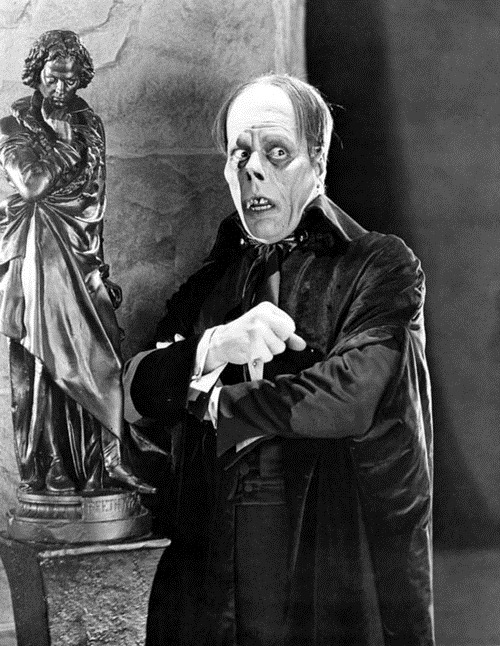During the 1920s and the 1930s, film was a booming industry. This was a time of great change, and the movies produced during that time shaped cinema as we know it today. This week, I discovered the origin of contemporary fictional monsters, and was able to observe the not-so-smooth transition of silent film era actors to films with sound.
By the 1930s, Hollywood was well established and five major movie studios dominated the field of production, distribution, and exhibition of film. They created a monopoly and were almost impossible to compete with. These major movie studios were Metro-Goldwyn-Mayer (MGM), which was the most impressive, 20th Century Fox, RKO Pictures, Paramount Pictures, and Warner Bros.
Although we only watched parts of the TV mini-series MGM: When The Lion Roars, this mini-series did a wonderful job of explaining the emergence of film studios at the time, and more specifically, the boom that MGM brought to cinema. MGM was described as being the “great film studio of the world”, producing about one film a week. In 1924, Louis B Meyer (American film producer and co-founder of MGM) introduced and iconized Leo the Lion to the world, in the film He Who Gets Slapped. This was the first MGM film that used the logo, one that remains iconic to this day.
Grand Hotel (1932) was another masterpiece by MGM. It was the first Hollywood all-star film, with an impressive cast, including Greta Garbo, Joan Crawford, John and Lionel Barrymore, and Wallace Beery. Despite having adored this week’s screening of Grand Hotel, I unsurprisingly was not impressed by the acting in this film. Grand Hotel was produced at the cusp of the silent film era, and the time when sound films arrived in Hollywood. The actors in this film were silent era stars, trying to adapt to the emerging stage of films with sound, and it’s no wonder why I found their acting subpar when accompanied by weak voices and forced accents. Despite this criticism, however, the actors shone and oozed old Hollywood.
Another huge studio was Universal Studios, which gave changed pop-culture forever with reoccurring monsters as characters—the Universal Classic Monsters. Universal Studios began with The Phantom of the Opera in 1924, with Lon Chaney as the Phantom. Following The Phantom of the Opera was The Hunchback of Notre Dame, and soon after, Universal Studios was notorious for the drama of disfigurement. The art of disfigurement that was observed during this time became a scapegoat for people who thought movies promoted violence, which was fortified when a murderer claimed that the makeup in London after Midnight inspired his violence.
Not long after came the monster franchises Dracula, Frankenstein, The Mummy, The Invisible Man, The Wolf Man, which shaped film. It is because of these iconic Universal Studio creations that symbolic monsters have become engrained in pop-culture. In these contemporary times, it is “general knowledge” that vampires are killed by sunlight and that werewolves can only die to the hands of silver, and this is because Universal Studios created and made these monsters iconic.


It’s amazing how time changed from having silent films and transforming into films with sounds. The few silent films that I’ve watched are good but I don’t think that I can just sit around all the time and not hearing a single word. The MGM is a universal opening for many movies that I know. Before seeing these videos in class, I never really paid attention to the lion in the film. Now that I know about it, I would actually pay attention to the beginning of all the movies I will be watching from now on. I think that MGM will continue to be the “great film studio of the world”.
LikeLike
I also found the mini serious on MGM quite fascinating. I did not realize just how big of a deal they were before last week.
I totally agree with your criticism pertaining to the silent film star’s acting in this sound film. I did a lot of acting and musicals throughout my middle school and high school career, and I am not saying that I am some kind of great actor but I could definitely observe the forced accents and awkward acting as you stated. It is not surprising to hear about the downward spiral some of these silent actors experienced when the era of sound came about. After all, they really couldn’t do anything about it. it is kind of ironic that something that the public demanded more of, ruined so many lives in the process.
I firmly believe that Universal is to thank for how much horror has evolved through the years. If it wasn’t for their work before and during the Great Depression, we would perhaps know a different style of horror even to this day.
LikeLike